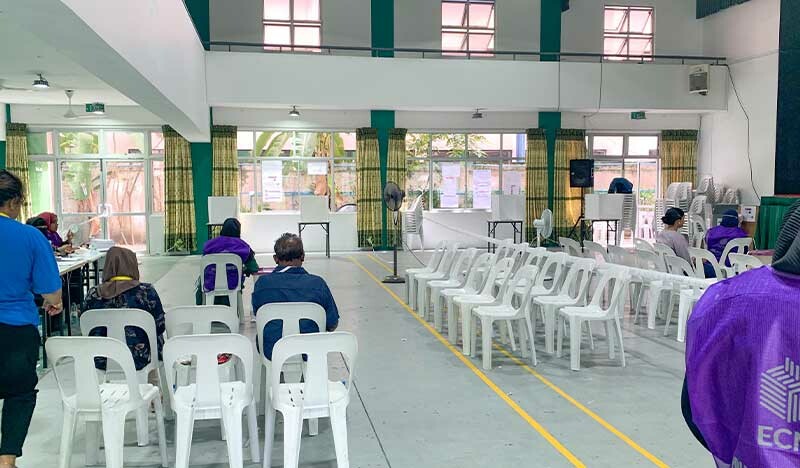ECM Considers Changing Voting Constituencies Based on Residential Address

Photo: MV+
The Elections Commission of Maldives (ECM) has announced that discussions are underway to make the necessary changes to allow voters to cast their ballots in their residential constituencies when electing individuals for electoral posts, rather than based on their permanent address.
During a programme broadcasted by state media PSM on Thursday, ECM member Hassan Zakariyya highlighted that, under the current system, voters cast their ballots based on the constituency of their permanent residence. This system, according to Zakariyya, sets the Maldives apart from many other nations where voters typically vote based on their place of residence.
Zakariyya provided an example to illustrate the implications of the existing system: individuals who have lived in the capital city, Malé, for over two decades are still required to vote in the constituency of their permanent address, often located on a different island.
He stressed that this arrangement has led to undesirable outcomes, particularly in cases where the elected representative is chosen by voters registered in the constituency but residing elsewhere. This can result in the election of a candidate who does not reflect the preferences of those who actually live and seek services in the constituency.
To address this issue, Zakariyya confirmed that the ECM is advocating for a systematic change that would enable voters to cast their ballots in the constituencies where they reside. He added that the Commission is actively engaging with political parties to explore potential solutions.
Zakariyya believes that such a reform would enhance the likelihood of residents electing representatives who genuinely reflect their interests and preferences.
The current debate over whether voters should be allowed to vote in their place of residence, rather than their permanent address, has been a longstanding issue in the Maldives, particularly in parliamentary and local council elections. The ECM’s proposed changes could mark a significant shift in the country’s electoral processes.









